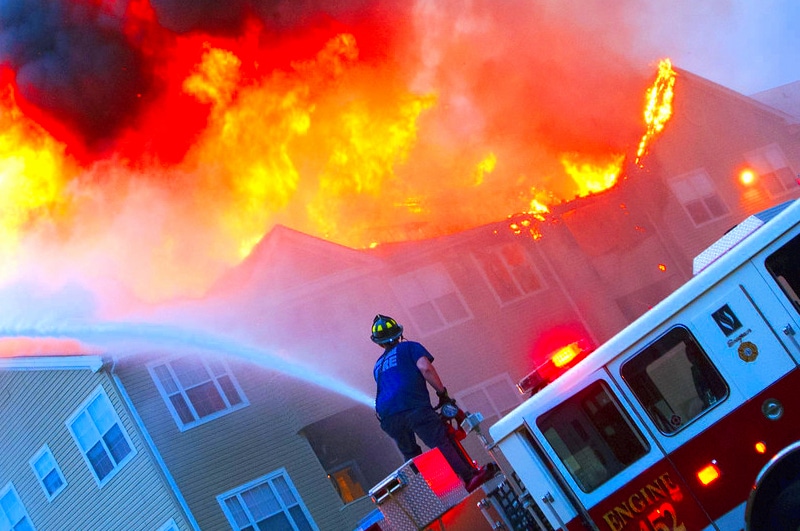Late in July, 36 residents of a Cross Street apartment building in Lowell were forced out of their homes by an apartment fire. While the cause of that fire is still unknown as of this writing, the image of dozens of local residents suddenly losing both their homes and possessions destroyed in the fire raises questions most of us rarely consider.
If you rent, here’s what you need to know about apartment fires:
Your landlord’s insurance generally won’t cover your personal possessions.
Many people mistakenly assume that because the building owner has insurance, they and their belongings are protected. But, in most situations, the landlord’s insurance policy won’t cover the tenant’s personal property. To protect personal belongings in the event of fire or other unexpected disaster, consider purchasing a renter’s insurance policy. Depending on the amount and value of your property, you may be able to obtain a policy for less than $20/month.
Massachusetts landlords are, however, required to carry a small amount of insurance coverage—at least $750 per unit—to assist tenants in relocating after a fire.
In some situations, your landlord may be responsible for your losses.
Although the building owner isn’t automatically responsible for losses in an apartment fire, the landlord may be liable if the building owner or manager was negligent in maintaining the property, and that negligence led to the fire. In fact, Massachusetts law imposes strict liability for building code violations, meaning that if non-compliant conditions led to the fire or aggravated injuries or other losses, the tenant need not even prove negligence.
A third party, such as a neighbor, may be responsible for your losses.
Your landlord isn’t the only person or entity that may be responsible for losses caused by negligence. For example, if your neighbor left the house and left a candle burning, he or she may be found responsible for the fire and may be liable for your losses. In this situation, however, it may be difficult or impossible to collect, since your neighbor may not have sufficient resources to cover your losses and probably won’t have insurance coverage that would compensate you. There are exceptions, though—especially when the responsible party is a business, such as a construction contractor or delivery service.
What to Do after an Apartment Fire
Of course, your first concern after an apartment fire will be getting to safety, seeking any necessary medical care, and then securing a place to stay and the necessities you may have lost. The landlord’s relocation insurance will help with that process somewhat, and if you have renter’s insurance, you’ll want to file a claim as soon as possible.
Once the immediate necessities are taken care of, you’ll want to create a detailed inventory of your losses. You’ll need this whether you’re pursuing compensation through your own renter’s insurance carrier or considering a claim against someone else. You may even need it when filing your income taxes.
If you’re allowed to and can safely access the property, photographic documentation can be very useful. But, don’t put yourself at risk. Only photograph the premises if the fire department had said it’s safe to go back inside.
If you believe your landlord or another party may be responsible for the fire, it is also in your best interest to contact a personal injury attorney as soon as possible to learn more about your rights, the possible liable parties, and what steps you should take next to preserve your options. To get started right now, just call The Broderick Law Firm, LLC at 978-459-3085 or fill out this contact form to schedule a free consultation

